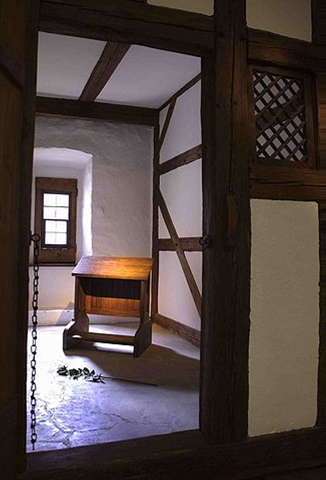The Impact of Martin Luther and the Reformation on Modern Revivalism
What can the Reformer teach us about revival?
The emphasis by Martin Luther and other Reformers on the ultimate authority of Scripture and the priesthood of all believers opened the way for all the great revivals of the modern era. Luther’s work broke the paralyzing hold of a religious hierarchy that claimed final authority over the people, quenched the work of the Holy Spirit in their midst, and confined Biblical knowledge to the priesthood. His emphasis on the priesthood of all believers unleashed the masses to pray and expect answers from God. If there had been no Luther, there would have been no Methodist revival, no Great Awakenings, no Cane Ridge, and no Pentecostal-Charismatic revival.
Luther’s Early Life

One of the monastic cells at the Augustinian Cloister in Erfurt, Germany where Luther lived from September 1505, until he left to take up his position as a professor at the University of Wittenberg in 1511. Few monks lived in such a cell permanently. Image: Paul T. McCain June 2006
Luther was born into a poor, peasant German family where he was taught to pray to God and the saints, to revere the church and the priests, and was told frightful stories about the devil and witches. One day, at the age of 22, he was caught outdoors in a terrible thunderstorm and feared for his life. In a state of panic, he made a vow to become a monk if his life was spared. True to his vow he entered the Augustinian monastery at Erfurt that same year of 1505.
As a monk, Luther’s chief concern was to become a saint and earn a place in heaven. He, therefore, observed the minutest details of discipline, living a very austere life and learning the principles of mystical prayer and meditation. His days were spent in reading and studying, prayer and fastings, night watches, and self-mortifications. His fellow monks held him up as a model of sanctity and envied his self-denial. He later said, “If ever a monk got to heaven by monkery, I would have gotten there.” However, in spite his austere lifestyle and many religious works he found no peace with God.
While a monk, Luther continued his studies and in 1507 he was ordained to the priesthood and celebrated his first mass. In 1511 he was sent to Wittenberg to be the professor of Bible at the newly formed university there, and, in the same year, he received his doctor of theology degree. He began to lecture in the vernacular on the books of the Bible and, to do so intelligently, he began to study the Bible in the original languages. It was while teaching through the New Testament, particularly Romans and Galatians, that Luther began to see the truth of justification through faith in Jesus alone.
Category: Church History, Summer 2009


